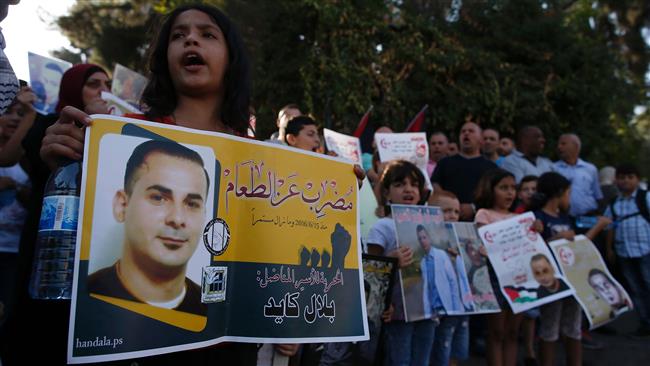
RNA - Israeli prison officials have agreed to release Muhammad and Mahmoud Balboul and Malek al-Muhammad, the head of the Palestinian Committee of Prisoners’ Affairs, Issa Qaraqe was quoted by Palestine Al Yawm TV as saying on Wednesday.
Al-Qadi is to be freed on Wednesday and the Balbouls will be released on December 6, said Qaraqe.
Muhammad had been refusing food for 75 days, Mahmoud for 79, and al-Qadi for approximately 77 days. Mahmoud was earlier reported to have suffered vision problems as a result of his strike.
The administrative detention of neither one is to be extended, he said.
The Palestinian official also thanked all those who had expressed their solidarity with the three inmates.
In August, the Palestinian Committee of Prisoners’ Affairs revealed that the Israeli regime had issued 25,000 administrative detention orders for Palestinians in the occupied territories since 2000. At present, it said, 750 Palestinians are held under administrative detention.
Administrative detention is an illegal policy under which Israeli authorities jail Palestinians for an indefinite period of time without trial or charge. The practice has drawn an international outcry.
Robert Piper, the United Nations’s resident and humanitarian coordinator for the occupied Palestinian territories, has described administrative detention as an “egregious” policy.
“I am deeply concerned about… detention without charge or trial,” he said in August.
111/847/C